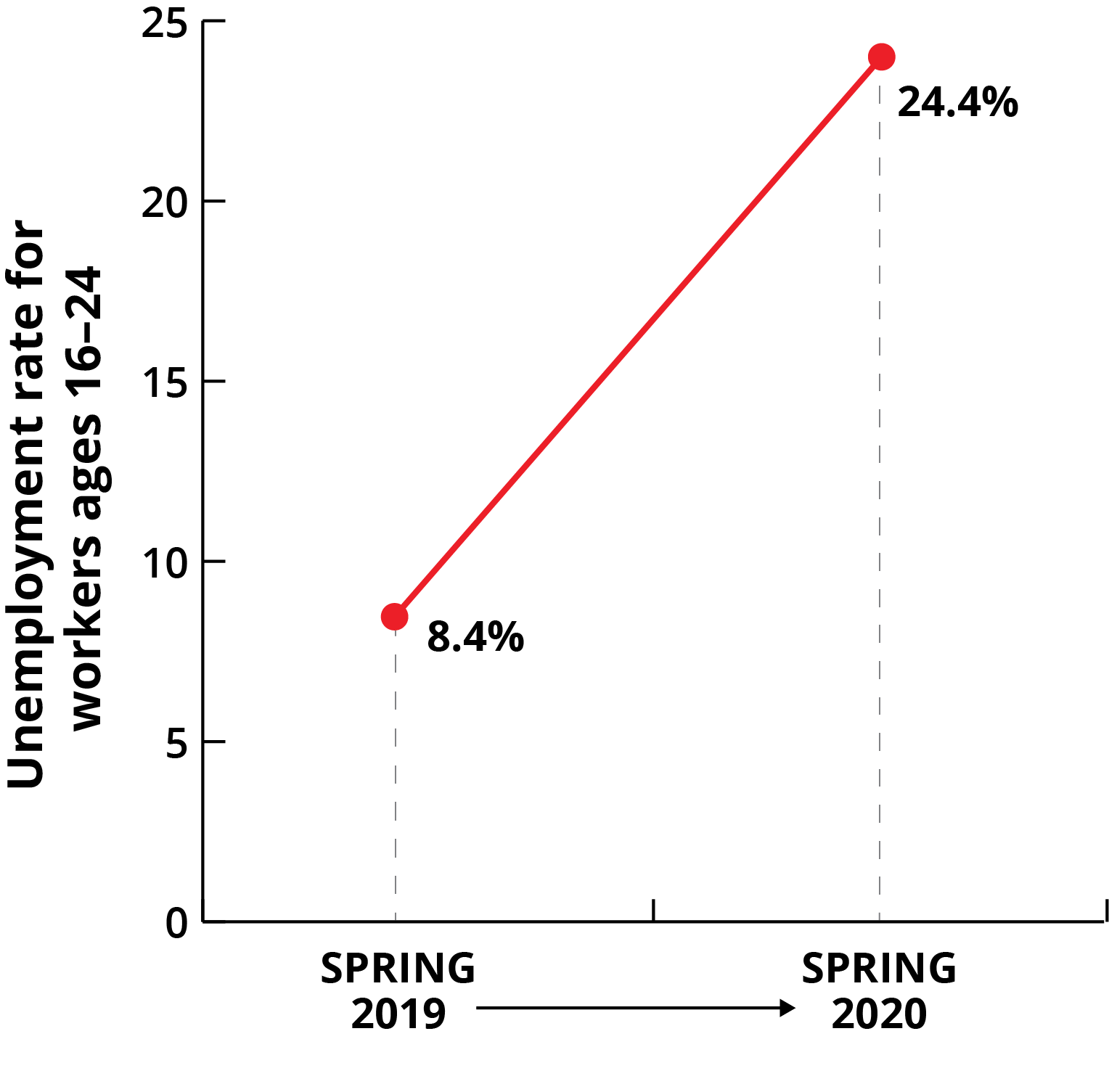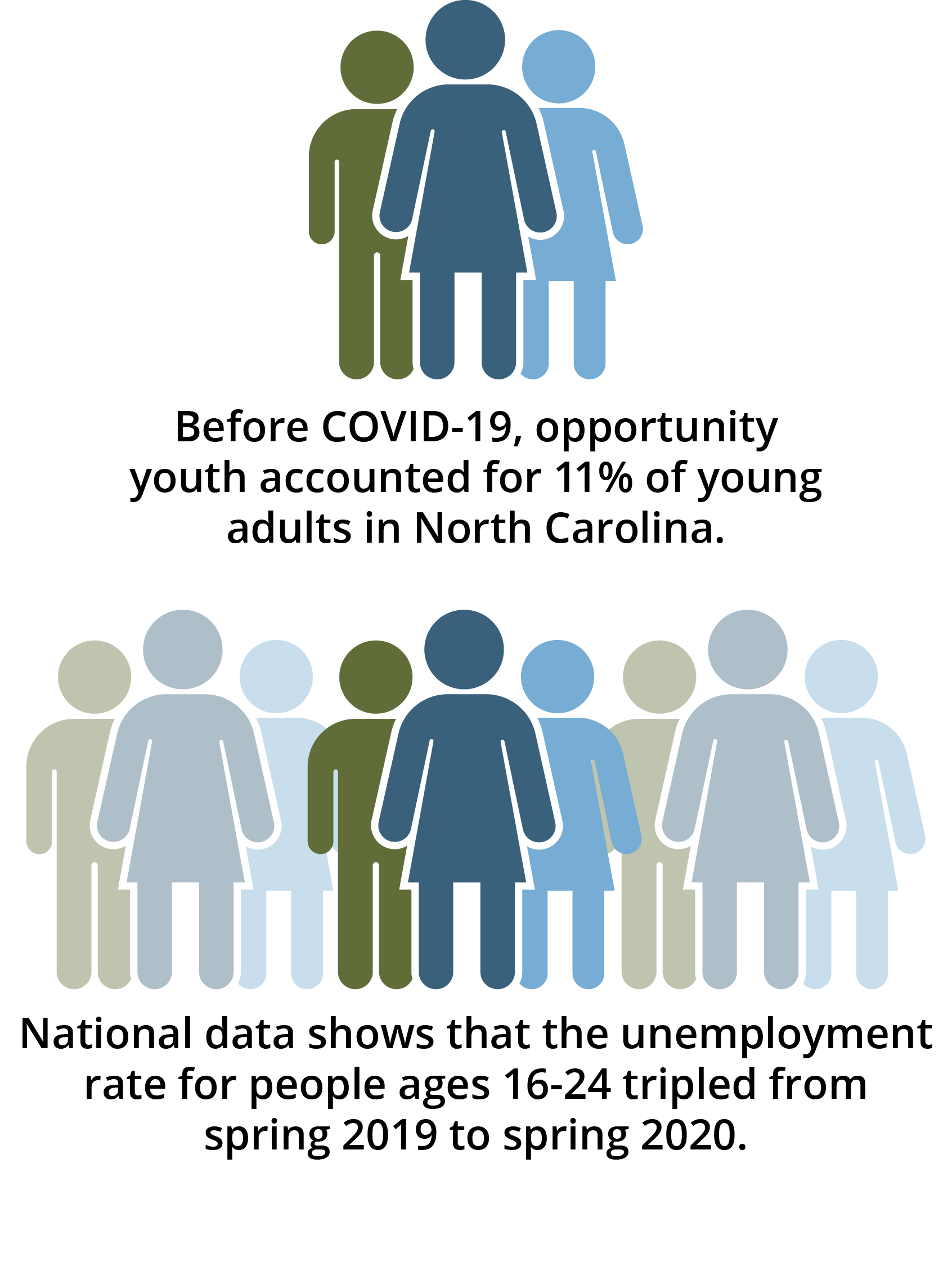Carolina Across 100 at the University of North Carolina at Chapel Hill (UNC-CH) has launched a statewide program, “Our State, Our Work: Connecting Young Adults with their Future,” that seeks to connect young adults to employment. Specifically, UNC-CH will spend the next two years focused on expanding and deepening education and employment pathways for young adults between the ages of 16-24 who are out of school and work. The campus is proud to meet this timely opportunity to offer life-transforming support to these young adults, contribute to the important myFutureNC statewide goal of increasing the number of residents with high-quality credentials or post-secondary degrees, and strengthen employers and communities across our state desperate for skilled workers.
The labor demand and supply scale is broken
The labor market has been in turmoil since the onset of COVID-19 in March 2020. Significant numbers of people lost their jobs as businesses and other organizations closed their doors or laid off staff as revenues fell. Others left jobs to care for dependents as day care and elder care establishments closed. Some of these employers have now reopened or even expanded, but many report that they are struggling to hire and retain employees. The effects can be seen far and wide – from help wanted signs in store windows, to heart-wrenching stories about the significant toll of staffing shortages on workers in sectors such as healthcare, to negative impacts on business expansion in sectors critical to our continued economic growth.

Young workers faced the highest job losses due to COVID-19. The overall unemployment rate for workers 16-24 jumped to 24.4 percent in Spring 2020 versus 11.3 percent for workers 25 and older. Those with the lowest levels of education – below a high school diploma – fared the worst. Already opportunity youth had a higher percentage of people living in poverty than non-opportunity youth in 2019 (31% vs 16%). With a changing labor market in which 67 percent of jobs created between now and 2030 are expected to demand some post-secondary credential, many of these young adults are at risk of being permanently shut out of an opportunity to make a living wage for themselves and their families.
You spoke and we heard you
In our recent Carolina Across 100 survey, we heard from over 3,000 North Carolinians representing each of the state’s 100 counties. The respondents, who also represent the private, public, and nonprofit sectors, emphasized workforce challenges for their communities intensified by Covid-19. When asked in the survey and a set of interviews how the University could support recovery from the wide-reaching effects of the pandemic, most answers related to helping to address workforce concerns.
A focus on young adults
Our partnership with communities will focus on those young adults ages 16-24 who are not currently connected to any educational institution or to employment. As a result, they are sometimes referred to as disconnected or opportunity youth. We prefer the term “opportunity.” It captures our sense of optimism.
Many leaders across the state have toiled for years to improve educational and employment outcomes for opportunity youth. As a result, from 2009 to 2019, the rate of opportunity youth declined from 15 to 11 percent. However, communities and statewide organizations have seen as much as a decade’s worth of progress erased by the impacts of Covid-19. We are humbled to partner with existing champions of opportunity youth to strengthen the network of urban and rural community collaboratives and increase the pathways to employment.

Our work ahead
Our work will involve communities selected through an application process. The process will seek to work with rural, suburban, and urban communities with a mix of predominant industry sectors. We will support these communities in two primary ways:
Outcomes
Network collaboratives will also receive these benefits







